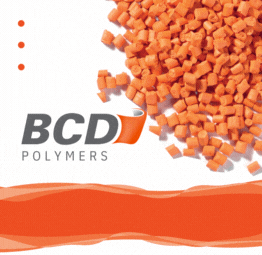According to the camping.info website, which lists more than 23,000 campsites, camping currently appears to be one of the most suitable types of vacation. Family groups sleep in their own tent or campervan, cooking for themselves and spending plenty of time outside. This is something many Germans have acknowledged with the result that even before mid-term break, there was a wave of booking inquiries and slots for the summer months are now in great demand. For this reason: get outside – maintaining social distance – and stay in a tent or campervan. You can be among your own people and if you have enough supplies, you won’t need to constantly pop into the campsite kiosk or local supermarket.
In any case, it is preferable to go down the reusable instead of disposable path. As an increased risk of breakage means people tend not to take tableware made of glass or porcelain with them on a camping vacation, reusable dishes made of high-quality plastic mean you are definitely on the safe and environmentally-friendly side. Energy is even saved during their manufacture: while the processing temperatures for glass are around 800 degrees and as high as 1,000 degrees for porcelain, thermoplastic plastics are processed at around 200 degrees. Contrary to the prevailing opinion that large volumes of CO2 are released during the production of plastic, the comparison outlined below refutes this myth. According to a study by the Plastics Europe trade association, plastic incurs around 1.3 percent of the overall CO2 footprint. Clothing is responsible for 9 percent, food contributes 13 percent, and recreation and vacation account for 18 percent. Reusable tableware made of plastic is durable and can be reused at the end of its life cycle. This is particularly applicable where thermoplastic elastomers such as the SOFT.EST® TPE offered by Actega DS are used in production.
After all, TPE technology does not require any time-intensive or complex temperature vulcanization for processing which in turn saves time and energy as well as reducing CO2 emissions. The TPE are free of PVC and plasticizers, and display a very low percentage of emitable substances. TPE compounds from Actega DS are reusable and food-safe. Furthermore, the material displays good flow properties and demolding characteristics in injection-molding tools. And another key criterion – particularly in the consumer goods market – concerns the individual coloration properties of the TPE material.
Not only camping tableware but also a wide variety of household and kitchen items can be manufactured using this food-safe and environmentally-friendly TPE – whether food storage boxes or chopping boards, plates featuring a non-slip element or reusable to-go bowls or cups. For example, reusable to-go cups developed in collaboration with Ornamin where the collar and, with the exception of the PP catch fastener, the entire lid are manufactured from a TPE developed by Actega DS. As colors are constantly changing in line with seasons and trends, it must be possible to react swiftly. Thanks to the good coloration properties of SOFT.EST® TPE, Ornamin can easily comply with customer requests and manufacture individual lids and collars in specific colors.
It is also possible to help to avoid waste by using your own reusable to-go tableware during your staycation when ordering a take-away lunch or dinner from your local Italian, Greek or Chinese. In recent months in particular, increased usage of food delivery services or take-aways from favorite local restaurants have led to significant generation of waste, as criticized by the Deutsche Umwelthilfe (German Environmental Organization) in a statement in June. Most of these services rely on disposable packaging, as do most restaurant owners, whereby there appears to be a major lack of knowledge concerning the fact that there are absolutely no restrictions on using reusable systems for beverage containers and menu boxes, or even for filling containers supplied by customers. “A general rejection of reusable cups and food boxes for hygiene concerns during the pandemic is not at all plausible,” explains the Head of Recycling at DUH, Thomas Fischer, in the statement referred to above. Neither filling containers supplied by customers nor taking back containers for which consumers have paid deposits are banned and remain possible at any time. Pertinent and updated hygiene guidelines are available from the German food association which outline in detail how reusable cups and menu boxes supplied or returned by consumers can be refilled in restaurants or snack bars – hygienically and without contact.
Even before the pandemic, 155,000 tons of waste were incurred by to-go food packaging which corresponds with an hourly consumption of around 400,000 menu boxes. There is a similar situation where drinking cups are concerned: according to the German environmental organization (DUH), 320,000 coffee-to-go cups are used every hour. That adds up to 7.4 million a day and almost three billion a year.
The fact that a trend reversal is required here is indicated by numerous initiatives aimed at creating more options for reusable products throughout the country. Major cities such as Hamburg, Berlin and Munich – but also smaller ones like Freiburg, Tübingen, Rosenheim or Jena – are relying on deposits instead of trash. Initiated in some cases by the municipal refuse collection companies, consumer advice centers, private companies or the German Environmental Organization, attempts are made to decrease the mounds of trash and costs associated with them, reduce the greenhouse effect, and protect the environment.
Withdrawal from the Fakuma
Actega DS would have liked to chat with the visitors at this year’s Fakuma about new products and product requests. However, Actega DS has decided to cancel the participation this year. As the general state of knowledge indicates that larger groups of people represent perfect breeding grounds for a renewed outbreak of the Covid-19 virus, Acetga DS does not wish to expose its visitors to any incalculable health risks. It goes without saying that all Actega DS employees are available at any time for consultations in smaller groups and is looking forward to presenting interesting innovations and applications.


